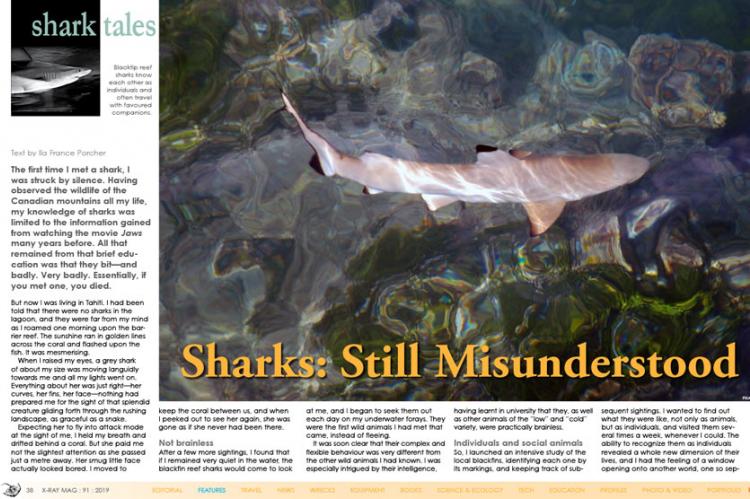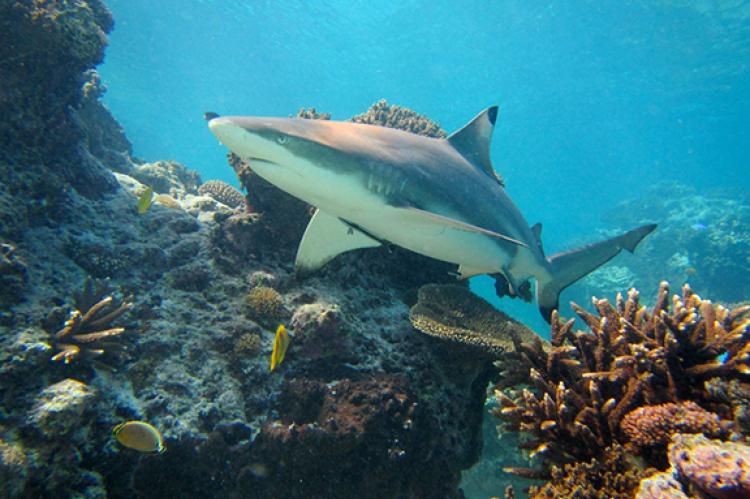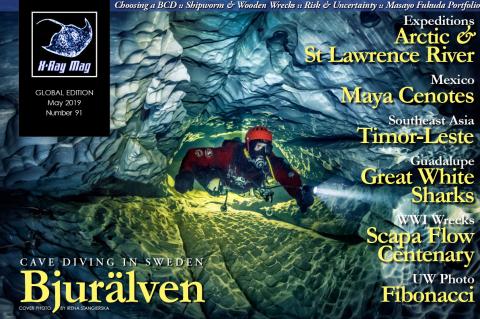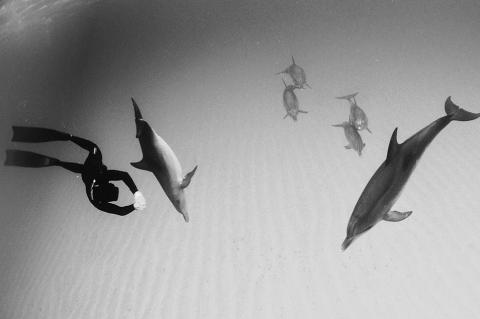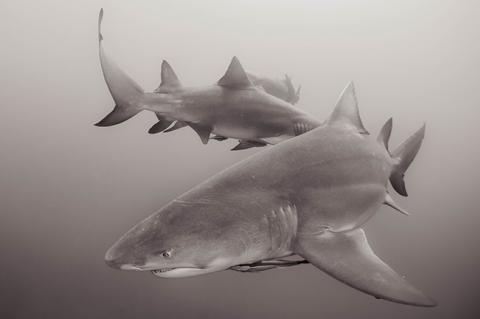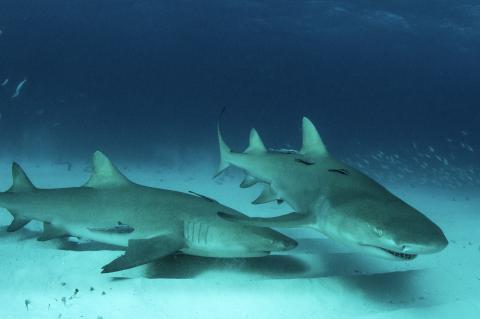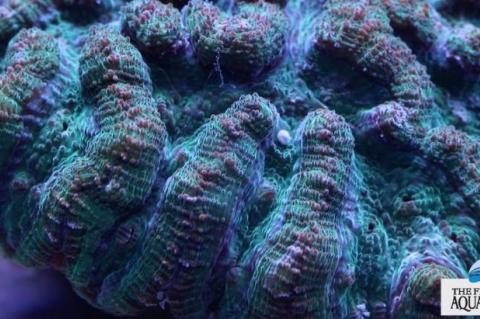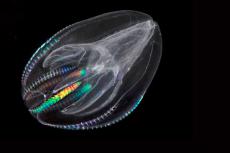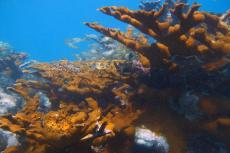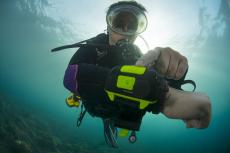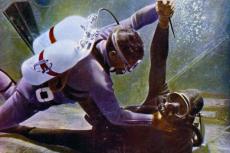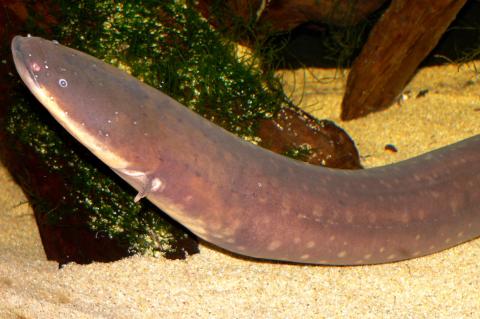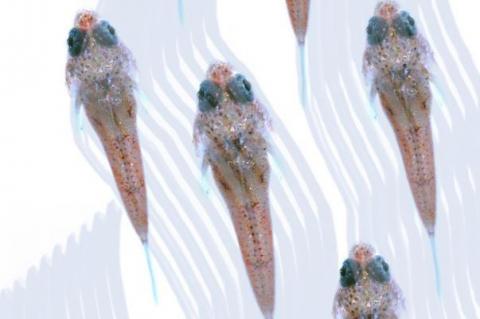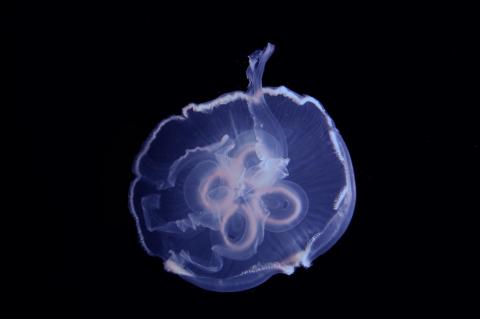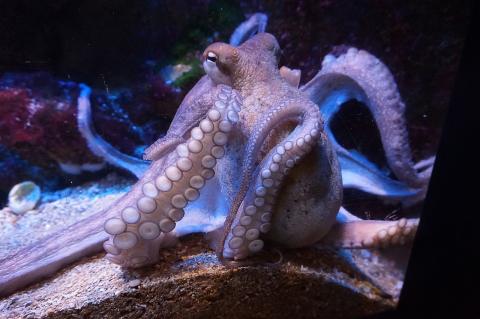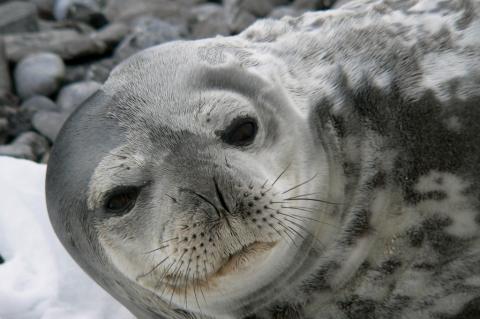Sharks: Still Misunderstood
The first time I met a shark, I was struck by silence. Having observed the wildlife of the Canadian mountains all my life, my knowledge of sharks was limited to the information gained from watching the movie Jaws many years before. All that remained from that brief education was that they bit and badly. Very badly. Essentially, if you met one, you died.
Tags & Taxonomy
But now I was living in Tahiti. I had been told that there were no sharks in the lagoon, and they were far from my mind, as I roamed one morning upon the barrier reef. The sunshine ran in golden lines across the coral and flashed upon the fish. It was mesmerizing.
When I raised my eyes, a grey shark of about my size was moving languidly towards me and all my lights went on. Everything about her was just right—her curves, her fins, her face—nothing had prepared me for the sight of that splendid creature gliding forth through the rushing landscape, as graceful as a snake.
Expecting her to fly into attack mode at the sight of me, I held my breath and drifted behind a coral. But she paid me not the slightest attention as she passed just a metre away. Her smug little face actually looked bored. I moved to keep the coral between us, and when I peeked out to see her again, she was gone as if she never had been there.
Not brainless
After a few more sightings, I found that if I remained very quiet in the water, the blackfin reef sharks would come to look at me, and I began to seek them out each day on my underwater forays. They were the first wild animals I had met that came, instead of fleeing.
It was soon clear that their complex and flexible behaviour was very different from the other wild animals I had known. I was especially intrigued by their intelligence, having learned in university that they, as well as other animals of the “low” and “cold” variety, were practically brainless.
Individuals and social animals
So, I launched an intensive study of the local blackfins, identifying each one by its markings, and keeping track of subsequent sightings. I wanted to find out what they were like, not only as animals, but as individuals, and visited them several times a week, whenever I could. The ability to recognize them as individuals revealed a whole new dimension of their lives, and I had the feeling of a window opening onto another world, one so separate from human life that it might just as well have been on another planet.
Soon the resident sharks, often accompanied by visitors, were waiting for me to arrive; they could recognize the sound of my kayak from far away. They were social animals and those in the lagoon were the females, each spending much of her time in a region about 500m across—her home range. They knew each other as individuals and often travelled with a favoured companion when they left home. Some roamed away often, for weeks or months at a time, while others were stay-at-home creatures and were only absent twice a year, once to mate, and once to have pups. There were a few males who regularly passed through that part of the lagoon but mostly they remained in the ocean on the other side of the barrier reef.
Displays of emotion
The blackfins were emotional animals. During one episode, the entire group got mad at me, and for several weeks, they would slam my kayak hard, from multiple directions, when I arrived. Yet, I never saw them fighting, and speculated that this was because they were not territorial, so greeted visitors to their region with friendliness instead of hostility.
Then a company from Singapore got set up throughout the far-flung archipelagoes of that island nation and began slaughtering the sharks for their fins. My sharks fled at first, and when some returned, their society was in disruption. It was two years before the divers, with the help of international pressure, were able to convince the government to protect them; French Polynesia is now the largest shark sanctuary in the world.
Affection and attachment
During the period in which they were being finned, because of personal difficulties, I was unable to get out to see them, and when I finally made it back, two months had passed. As I crossed into the sharks’ lagoon, I paused to drink some water and suddenly, there was a blackfin drifting past the boat, with more coming beyond, and they began to undulate against it. One slid against the paddle, and all around me they placidly glided, dorsal fins above the surface, pushing the curves of their bodies against my boat, moving beneath and pressing against it, again and again. I reached down and stroked them as they passed, instinctively responding to what could only be interpreted as an affectionate gesture.
The sharks did this each time they met me after that. One was always first to swim slowly beneath my hand as I sat in the low kayak and I would stroke her. She would spend some time drifting back and forth while being caressed, then undulate against the kayak and disappear below.
On one evening of perfect calm, through the flawless clarity of the water, I saw the group of sharks shoot straight upwards from two metres beneath, undulate against the boat, and go straight down again, so that their tails flashed above the surface around me momentarily like the wings of birds, droplets flying. There were several of them on each side. Then they returned to the surface and slid against the boat, the paddle, and oscillated from one to the other.
They revealed this emotional attachment on another occasion too. Instead of staying for an hour and a half as I usually did, I just came to give them some treats, and then had to rush home. As soon as I approached the kayak, and they understood that I was about to get into it, they all soared over and began to circle me. Then, as I paddled home, they followed. Thirty-six sharks accompanied me out of the lagoon and some distance down the deep bay towards my house before they began to turn back, one after another, circling back towards the lagoon, returning, then finally returning to the shallow turquoise waters where they lived.
Deserving of protection
The difference between true shark behaviour, and their awful reputation, is very exaggerated, but sharks are ordinary animals with high intelligence and a repertoire of behaviours that is still misunderstood and mostly unknown.
Divers, being the only people to meet them in their own environment, need to take the lead in insisting that they be protected from further depletion through overfishing, and especially from the shark fin market that is driving them towards extinction. ■
Ila France Porcher, author of The Shark Sessions and The True Nature of Sharks, is an ethologist who focused on the study of reef sharks after she moved to Tahiti in 1995. Her observations, which are the first of their kind, have yielded valuable details about their lives, including their reproductive cycle, social biology, population structure, daily behaviour patterns, roaming tendencies and cognitive abilities. For more information, visit: ilafranceporcher.wixsite.com/author.
Download the full article ⬇︎
